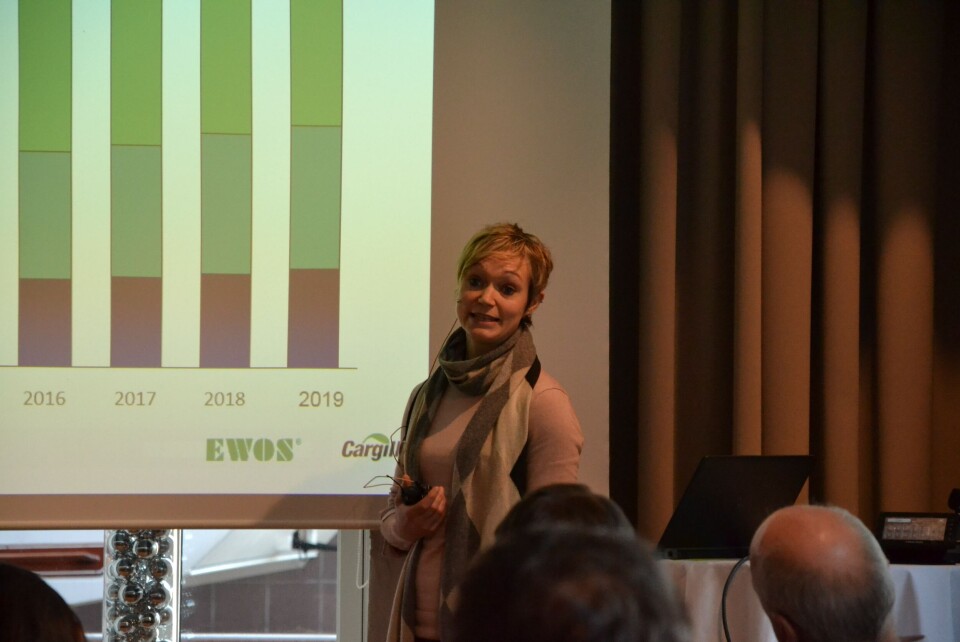
Insects on the menu by 2018?
Salmon farmed in the UK and Norway could be fed diets containing insect meal by 2018, according to Cargill’s May-Helen Holme.
In a talk about the potential of using insects as a raw material in feed during NIFES Network on Insects in the Circular Economy (NICE), which was held this week in Bergen, she spoke both about the potential for insect meal and the obstacles that need to be overcome before it can be incorporated in salmon feeds.
According Holme, Cargill - the owner of the Ewos brand - is looking at several new feed ingredients to meet the increasing demand for aquafeeds, and she points out that there is both the funding and determination to use insects in the European salmon feed market.
“Insects are suited for salmon farming in Europe,” she states.
However, she adds that a number of factors must be in place before a feed company can adopt a new raw material – including high protein concentrations, low levels of anti-nutrients, the availability of large volumes of the ingredient, the right price and right technical components.
Holme believes insects will become a useful feed component, and hopes to use them soon, but before that happens, she points out that regulations need to be in place.
“It comes down to food security, there cannot be drugs and antibiotics in our feed, they must come from clean sources,” she observes.
“We thought that maybe it would be possible to use them in 2016. Now I have heard that they might not be in place until 2018, which means it will take longer to develop the feed,” she adds.
Holme was later asked about the volume required before Cargill would consider using insects in commercial feed production.
“We would need at least 40,000 tonnes [of insect meal] before we can look at it,” the researcher said, but added that Cargill would like to participate in developing such feeds.
She also said that the research department of Cargill has examined how feed containing insects effects salmon.
“We have seen varying results, but they are a natural part of the diet of salmon, and we will see positive effects if used properly,” she concluded.






















































